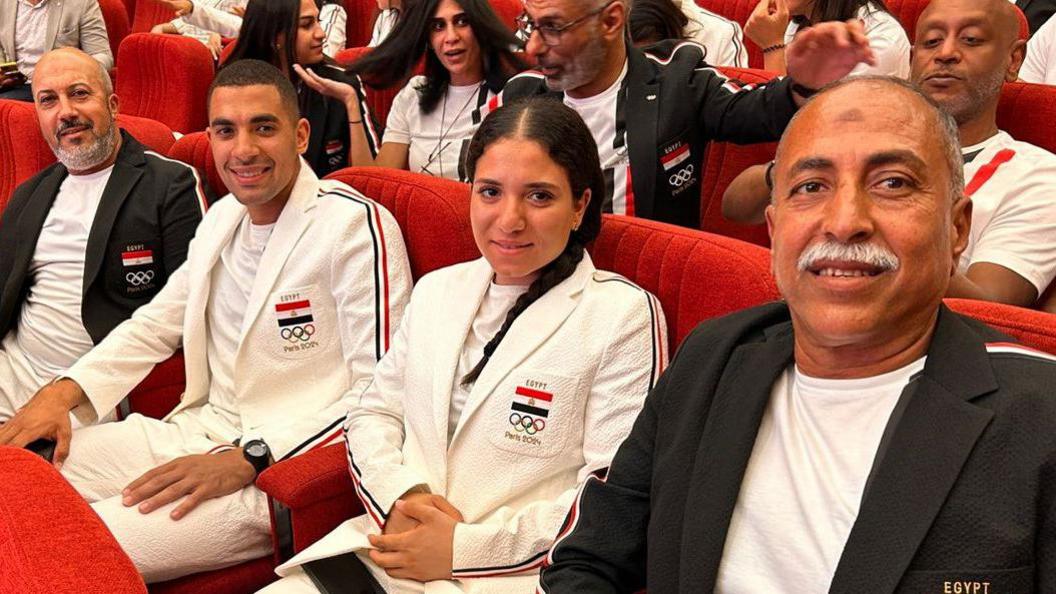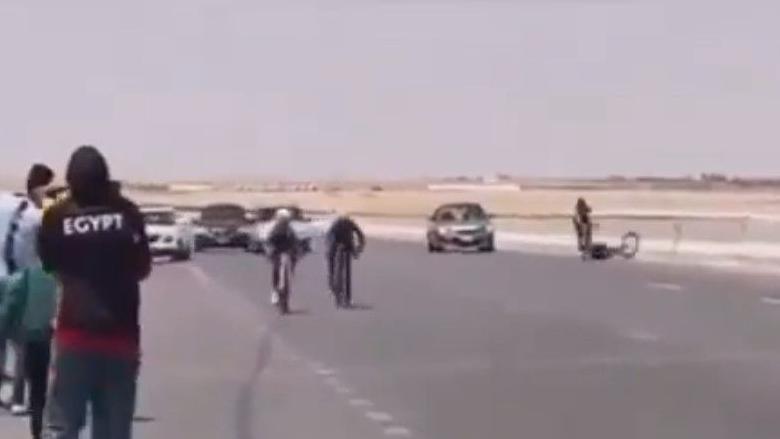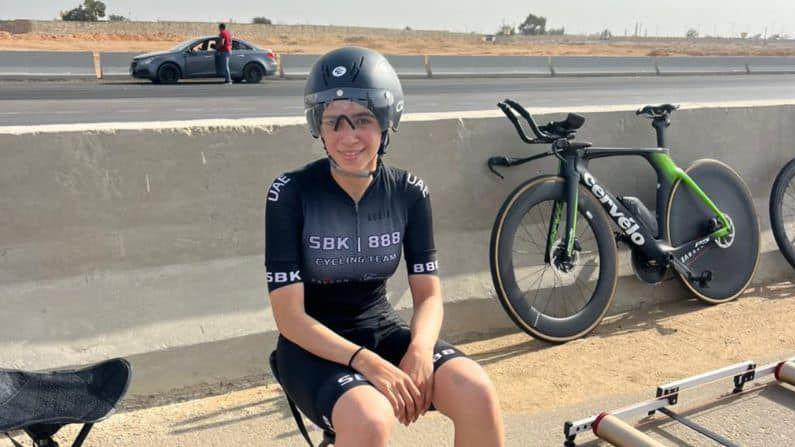Anger in Egypt after crash cyclist picked for Olympics

Shahd Saeed (2nd right) with other members of Egypt's Olympic cycling team
- Published
With just two weeks to go until the Paris 2024 Olympics begin, many Egyptians are debating the decision to select as a competitor a cyclist who collided with a rival team-mate who was knocked into a cement barrier.
In April, cyclist Ganna Eliwa, 19, was left concussed and with a broken right collarbone and severe cuts and bruises to the right-hand side of her body, according to a medical report, after she was pushed off her bike 300m (980ft) before the finishing line.
In video of the incident, external, her opponent, Shahd Saeed, also 19, is seen riding behind Eliwa before she swerves, forcing Eliwa into the barrier. The latter underwent an operation to fix her right shoulder, suffered temporary loss of memory and is still unable to resume her business.
Saeed said a couple of times that it was an accident, but Eliwa says her opponent never apologised for what happened. It is unclear what caused Saeed to swerve into the other rider.

Video posted online showed Ganna Eliwa crashing to the ground (right) after Shahd Saeed swerves into her
After an investigation into the incident, the Egyptian Cycling Federation suspended Saeed from the sport for one year and fined her the equivalent of $100 (£77) - the maximum penalty. Despite this, they still registered her name among the competitors in the Paris Olympics track cycling, causing public anger in Egypt.
On Facebook, users swarmed the account of the federation, appealing to it to strike Saeed’s name off the list of competitors. One comment read: “Best of luck to all participants except for the rider who pushed her colleague. She’s not the best person to represent Egypt.”
Eliwa also featured prominently on night-time talk shows, wishing Saeed bad luck.
“I hope she can take part in the Paris Olympics because I’m pretty sure she would come last,” she told one TV presenter.

Ganna Eliwa says Shahd Saeed never apologised for what happened
The president of the Egyptian Cycling Federation said Saeed’s participation in the Olympics was “in favour of Egypt”, noting that the organisation could not remove her because it was too late to replace her.
Many commentators compared Saeed to Mohammed Ali Rashwan, an Egyptian judoka who prized fair play above a gold medal at the Los Angles Olympics in 1984.
"By refusing to attack his opponent’s clearly injured right leg, the Egyptian judoka lost an obvious opportunity to be crowned Olympic champion, but instead he won worldwide acclaim and inner peace,” some quoted the International Olympic Committee as saying about Rashwan, external.
Others said the choice of Saeed violated the three values of Olympism - excellence, respect and friendship - and urged authorities to reconsider their decision.
Prompted by the criticism, the ministry of sports asked the Egyptian Olympic Committee to examine Saeed’s participation in Paris 2024 in light of “international accords and ethical rules”.
After maintaining a long silence under fire, Saeed told a local newspaper this incident was in the past, questioning why it was raised again before the games.
She again reiterated the incident was not “deliberate”.
Cycling is not a popular sport in Egypt, but President Abdul Fattah al-Sisi frequently encourages men and women to get on their bikes.
He has been pictured numerous times leading hundreds of cyclists, including public figures, on a rally through Cairo at dawn.